EDRi
Filter by...
-
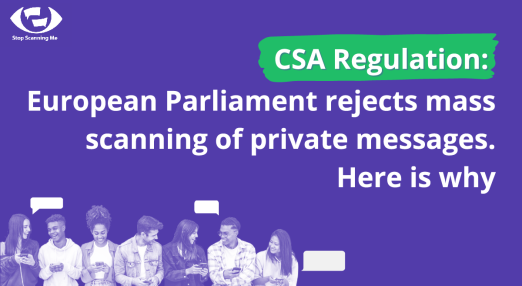
CSAR: European Parliament rejects mass scanning of private messages. Here is why
On 22 November, the European Parliament officially adopted its position on the draft ‘Regulation laying down rules to prevent and combat child sexual abuse’ (CSAR). With strong support for this position from all seven European political groups, this marks a positive development for human rights in one of the most controversial draft European Union (EU) laws in recent memory.
Read more
-
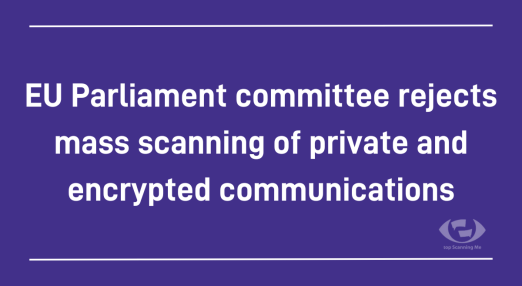
EU Parliament committee rejects mass scanning of private and encrypted communications
On 14th November, Members of the European Parliament’s ‘Civil Liberties’ committee voted against attempts from EU Home Affairs officials to roll out mass scanning of private and encrypted messages across Europe. It was a clear-cut vote, with a significant majority of MEPs supporting the proposed position.
Read more
-
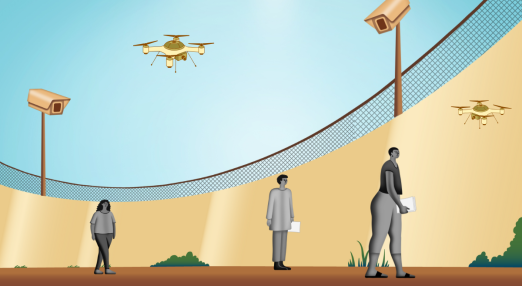
Unchecked AI will lead us to a police state
Across Europe, police, migration and security authorities are seeking to develop and use AI in increasing contexts. From the planned use of AI-based video surveillance at the 2024 Paris Olympics, to the millions of EU funds invested in AI based surveillance at Europe’s borders, AI systems are more and more part of the state surveillance infrastructure.
Read more
-

Activists come to Brussels to tell MEPs to ensure everyone’s digital security amid mass surveillance measures in CSA Regulation
Between 9 and 11 October, 23 Stop Scanning Me activists from 13 European countries travelled to Brussels. They were students, parents, lawyers, young activists, human rights defenders and technologists. They came on behalf of the 200,000 people who signed the movement petition to tell their EU representatives in the European Parliament that the CSA Regulation proposal must be rejected to prevent mass surveillance.
Read more
-

Political negotiations continue: EU lawmakers fail to agree on strong rules for regulating political advertising
On 10 October, the European Parliament, the Commission and the EU Council had their fifth meeting (in the so-called trilogues) to find an agreement on the transparency and targeting of political advertising. The three institutions could not come to a consensus. Here is why.
Read more
-
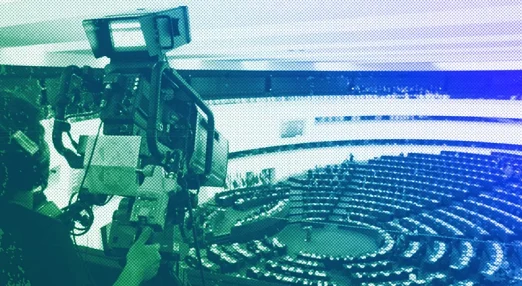
Will the European Parliament walk the talk and protect journalists?
In a democratic society, where we rely on journalists to act as public watchdogs, we cannot have them worried about becoming a target of government-sanctioned spying.
Read more
-
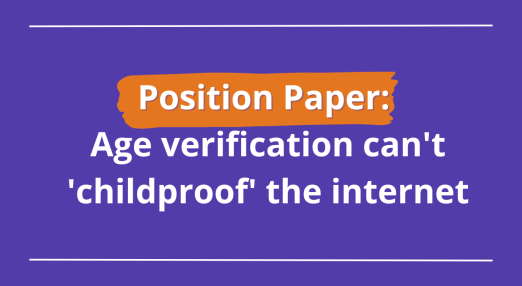
Position Paper: Age verification can’t ‘childproof’ the internet
EDRi has published its policy paper on age verification to shed light on the risks of the widespread use of age verification and to chart out possible alternative solutions.
Read more
-
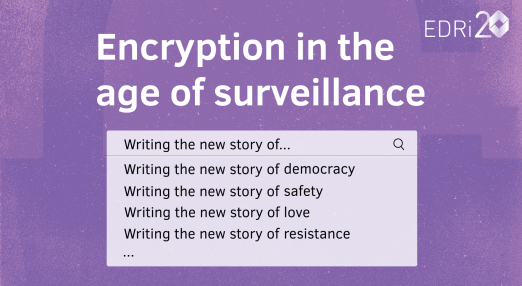
Event summary: Encryption in the age of surveillance
The EDRi-organised event on encryption, surveillance, and privacy brought together key policymakers, academics, activists and members of the press to build a better understanding of why encryption is important for people and democracy.
Read more
-
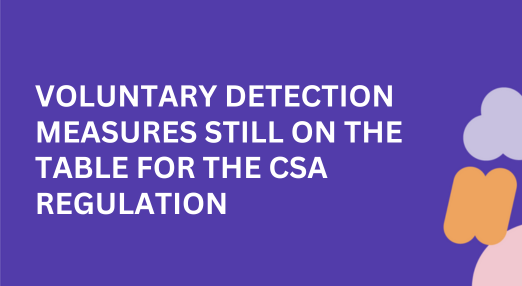
Voluntary detection measures still on the table for the CSA Regulation
Whilst the draft EU CSA Regulation is intended to replace current voluntary scanning of people's communications with mandatory detection orders, lawmakers in the Council and Parliament are actively considering supplementing this with "voluntary detection orders". However, our analysis finds that voluntary measures would require a legal basis in the CSA Regulation, which would likely fall foul of the Court of Justice. Content warning: contains discussions of child sexual abuse and child sexual abuse material
Read more
-

EDRi is trialling the four-day working week
Starting from 1 July, the EDRi office in Brussels will begin a trial of working time reduction until the end of the year. The pilot foresees that all full-time staff members will work 32 hours over four days per week (Monday to Thursday) while maintaining salaries at the same level. The pilot will run from July to the end of December, followed by an evaluation to explore a shift to the 4-day week.
Read more
-

Open letter: e-Evidence package lacks appropriate safeguards, EU Parliament must reject it
Civil society, doctors, lawyers and journalists associations and internet service providers are calling on MEPs to reject the so-called “e-Evidence” package during the plenary vote on June 13 because the proposed system of cross-border access to data in criminal matters would severely undermine fundamental rights.
Read more
-

Missing: people’s rights in the EU Digital Decade
In June 2023, the European Union (EU) will adopt its first report on the state of the ‘Digital Decade’ – a plan launched in 2022 with digitalisation targets for business, public services and people’s digital skills. The Digital Decade reads more like a business plan than a policy programme.
Read more
